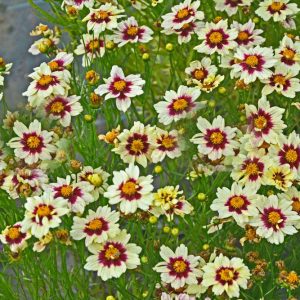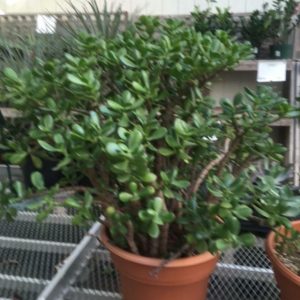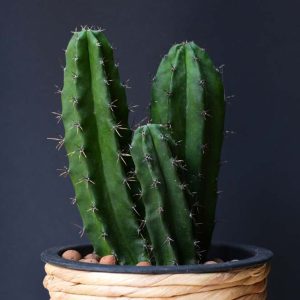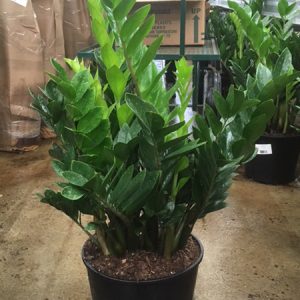Description
Mimulus – Diplacus – Monkey Flower – Musk –
There are about 180 species of quick growing annuals, perennial, and evergreen shrubs, in this genus. They all may be short lived. They occur in Southern Africa, Asia, Australia, and North, Central and South America, usually occurring in damp areas but sometimes found in chaparral or deserts. From stems covered in fine hairs and sticky glands, which may be present on the opposite, smooth edged or toothed leaves which are linear to nearly rounded, and mostly pale to dark green. Snapdragon like, 5 lobed, 2 lipped, tubular shaped flowers, often heavily spotted in contrasting colors, are borne from spring to autumn on upright stems, either in the axils or in spike like racemes. The smaller species and cultivars are suitable for a damp pocket in a rock garden, grow most of the larger ones in a damp border or bog garden. Use the shrubs in a warm border. Where not hardy grow as bedding annuals.
Grow most species in fertile, humus rich, wet or very moist soil in full sun or light, dappled shade. Divide perennials in spring.
Prone to downy mildew, aster yellows, powdery mildew, gray mold, whiteflies, spider mites, and aphids.
M. x bartonianus – This cross between M. cardinalis and M. lewisii grows 24″ tall and 18″ wide. It produces elliptic, lobed, toothed, softly hairy, sticky, mid green leaves, to 3″ long. From early summer to early autumn it bears solitary, axillary, tubular, bright clear pink to rose-red flowers, to 1 1/4″ long, with wide lips and with red-brown spots on the yellow throats.
Zones 8-10





